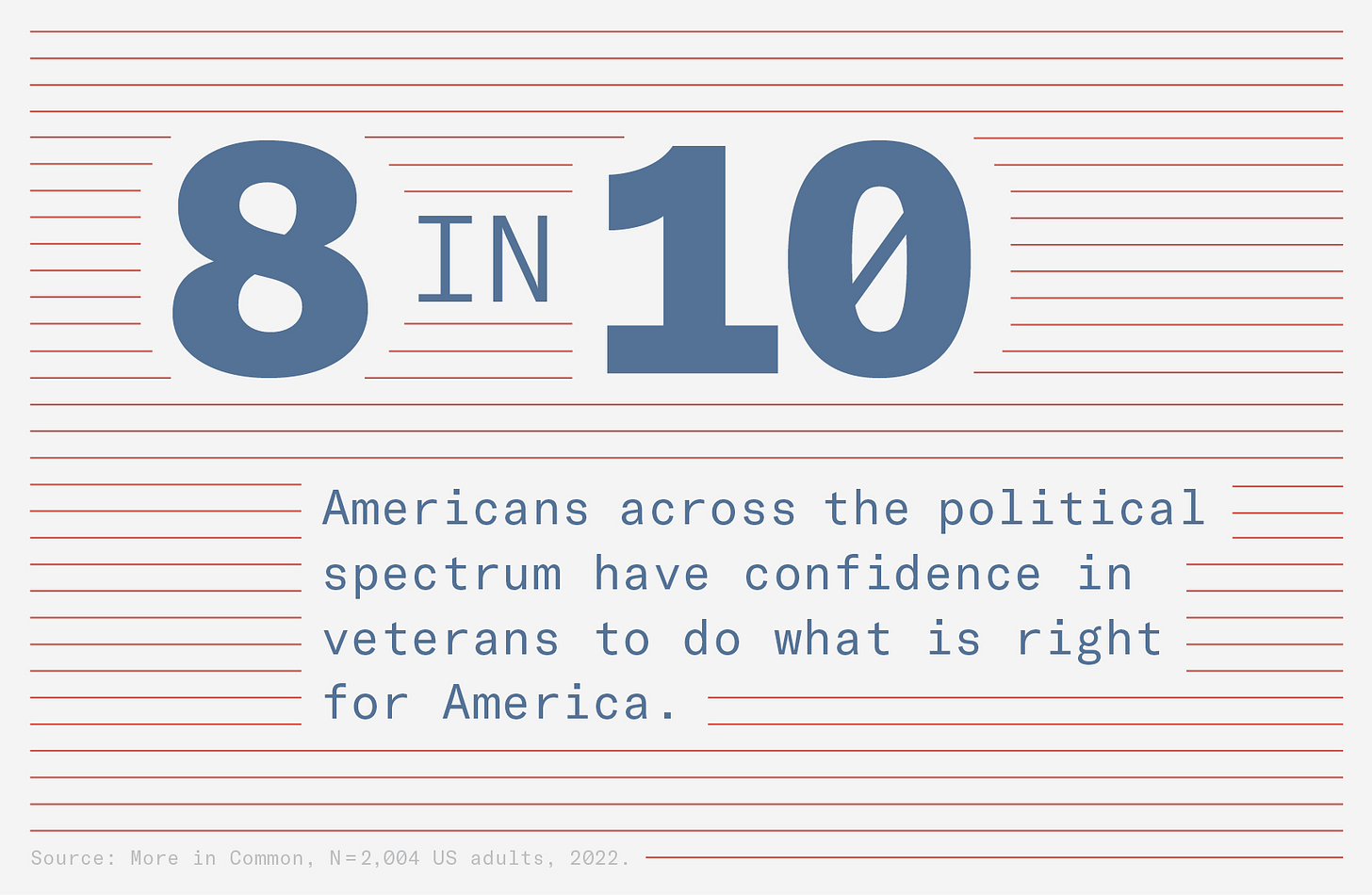Can Veterans Help Bring Americans Together?
Summary: New research looks into the trust and respect Americans have towards military veterans and suggests more effort is needed to connect civilians and veterans.
At a time when Americans’ trust in our institutions is at an all-time low, our latest survey found veterans could play a unique role in disrupting polarization and bringing more moderation and civility to politics.
This fall, More in Common surveyed over 2,000 Americans and found that 76% say veterans are role models for good citizenship, and 8 in 10 Americans across the political spectrum say they trust veterans to do what is right for America.
Veterans also played an important role in the midterms: more than 80 Republican and Democrat veterans were elected to Congress and the Senate, and many more were also elected at the state and local levels. Furthermore, Vet the Vote, a coalition of non-profits looking to increase the number of military vets and their families to serve as poll workers, recruited more than 63,000 military veterans and families to serve as poll workers. This civic activity likely had a meaningful impact on the election given that our survey showed more than 1 in 4 Americans feel that having a veteran serve as a poll worker increases their confidence that the election was run fairly.
However, although 81% of Americans across the political spectrum say they believe it’s important for nonveterans to engage with veterans, more than half of Americans (54%) say they “have never or rarely talk with a veteran.”
Most Americans across the political spectrum believe it is very or somewhat important for nonveterans to engage with veterans in their communities.
However, around half of Americans never or rarely communicate with veterans.
This presents a “growing concern,” according to our own Afghanistan War veteran and MiC US Director, Dan Vallone, as stated in his op-ed in Stars and Stripes.
“Given the heightened focus on political extremism among veterans and the declining trust Americans seem to have in the military, absent any intentional effort to build relationships that cut across ideology and veteran status, we could see more Americans start to sort veterans into categories of “good” and “bad” based upon their ideological orientation. Not only will this hurt the veteran community, but it will add more fuel to the fire of polarization burning through our social fabric,” Vallone said in the column.
Vallone encourages citizens to reach out and build relationships with military veterans as they “can serve as critical leaders for such efforts to bring Americans together under the themes of freedom, service and sacrifice.”
You can read the rest of his column in Stars and Stripes. See our full report here.






